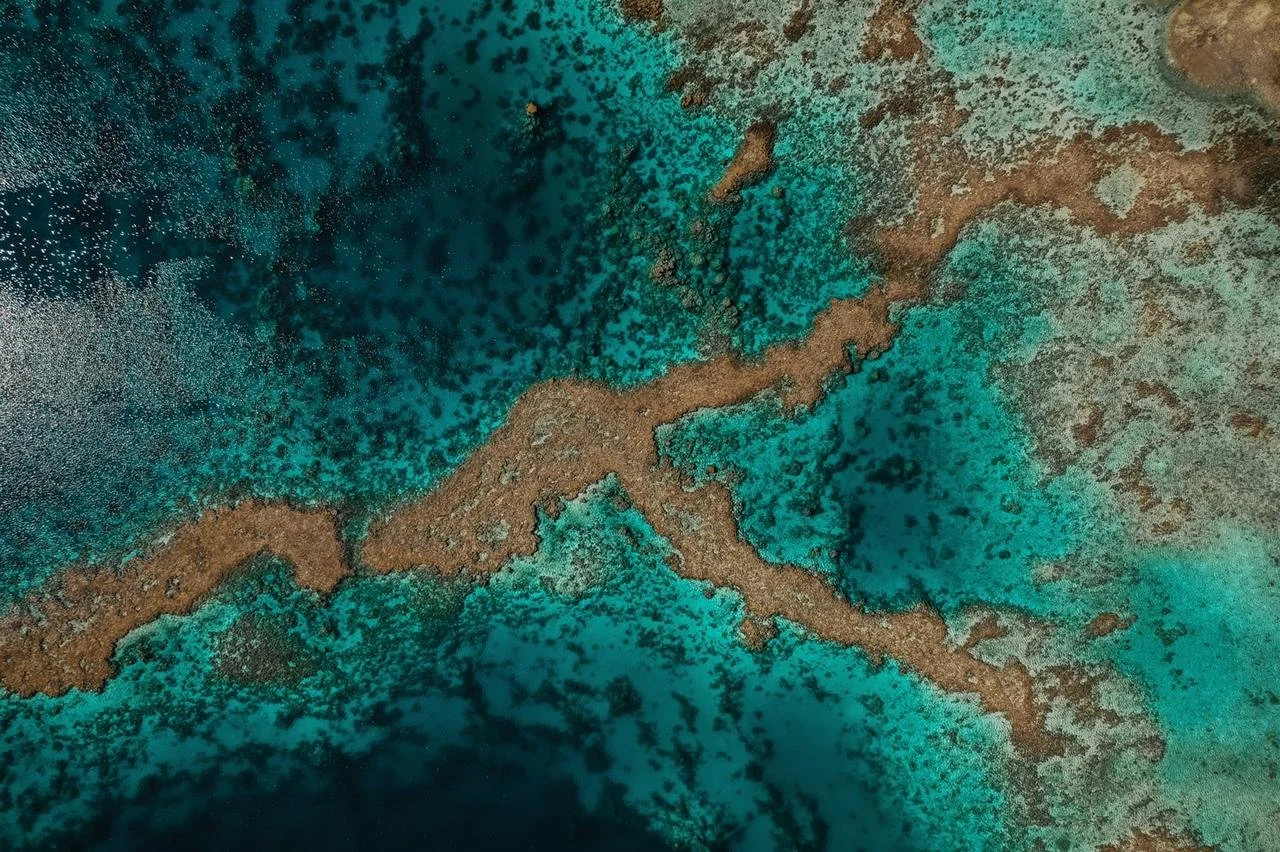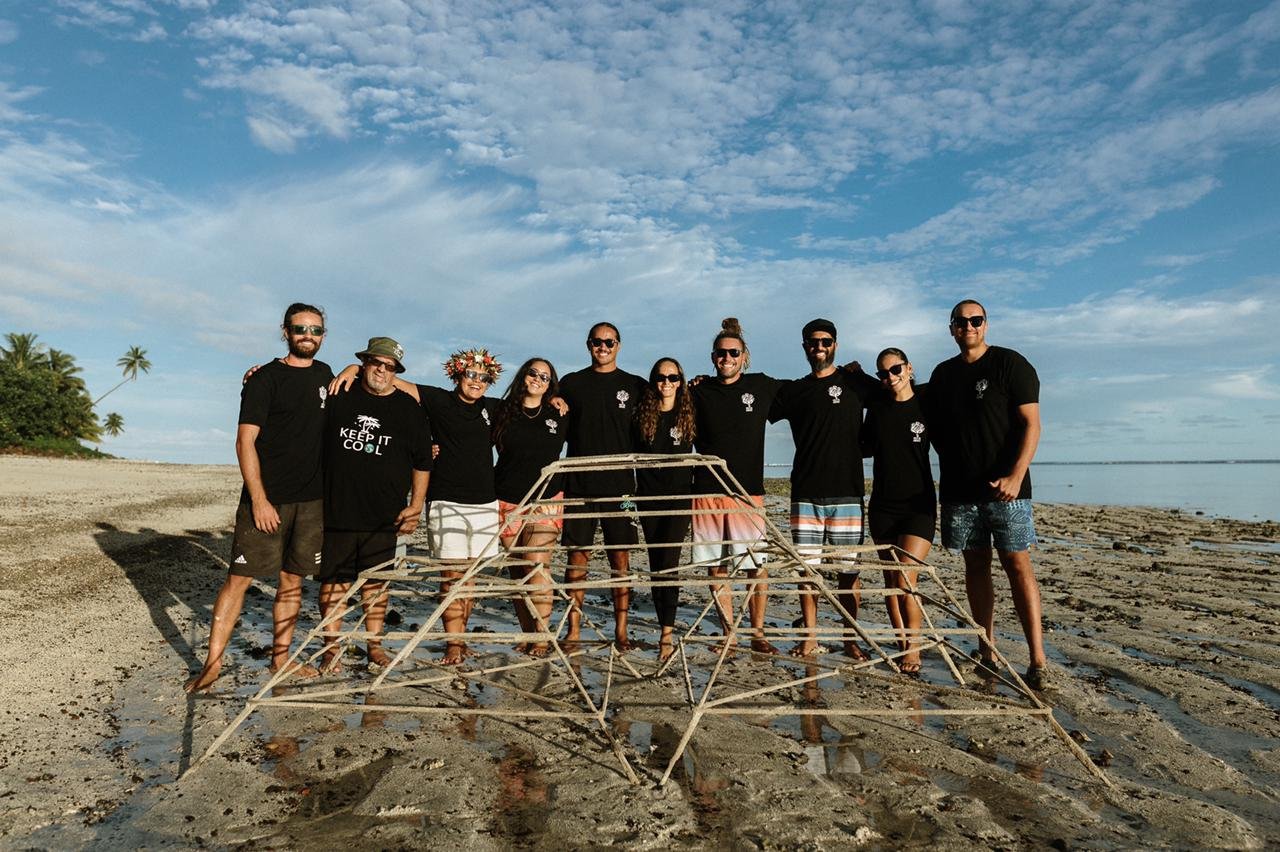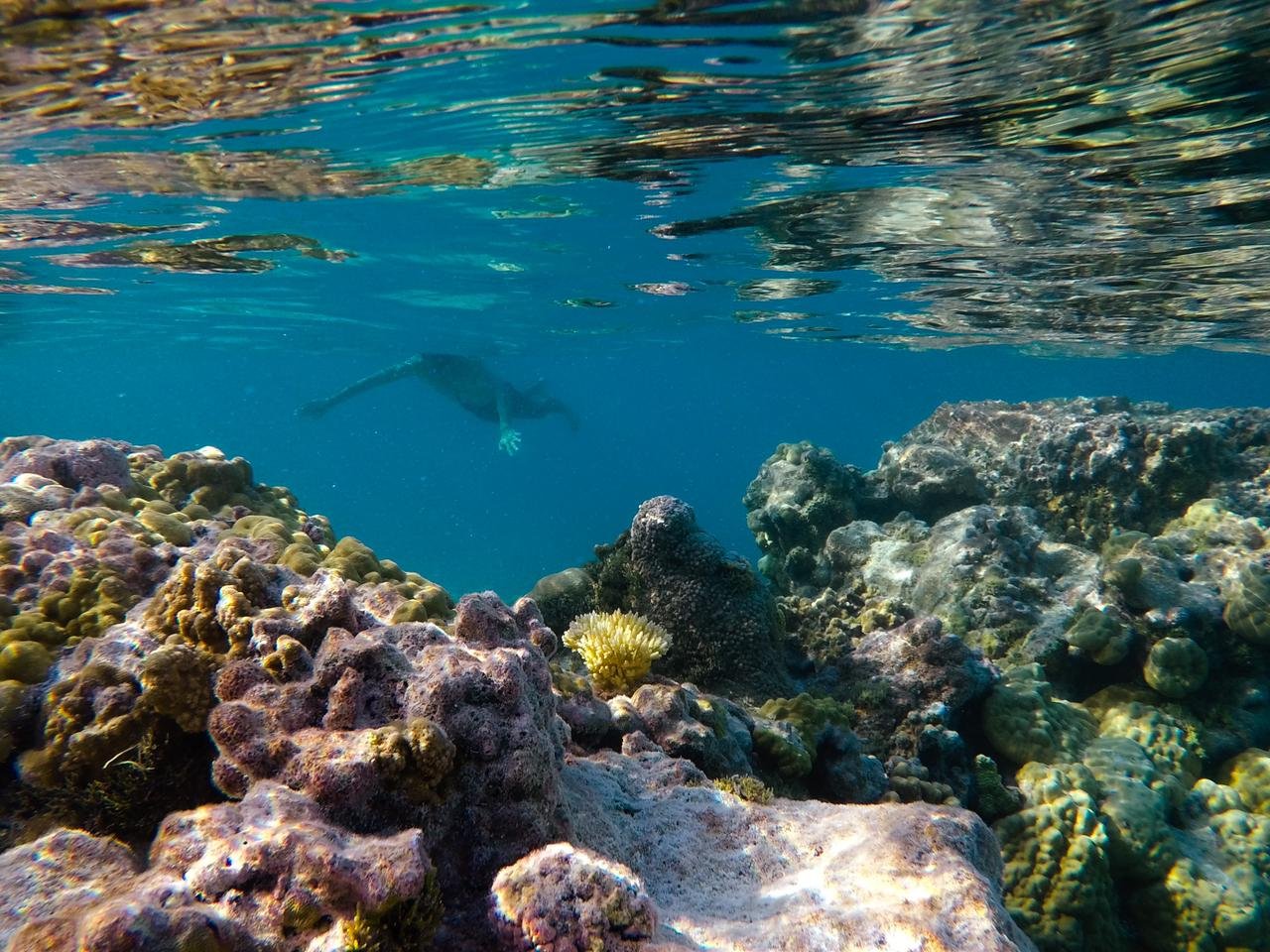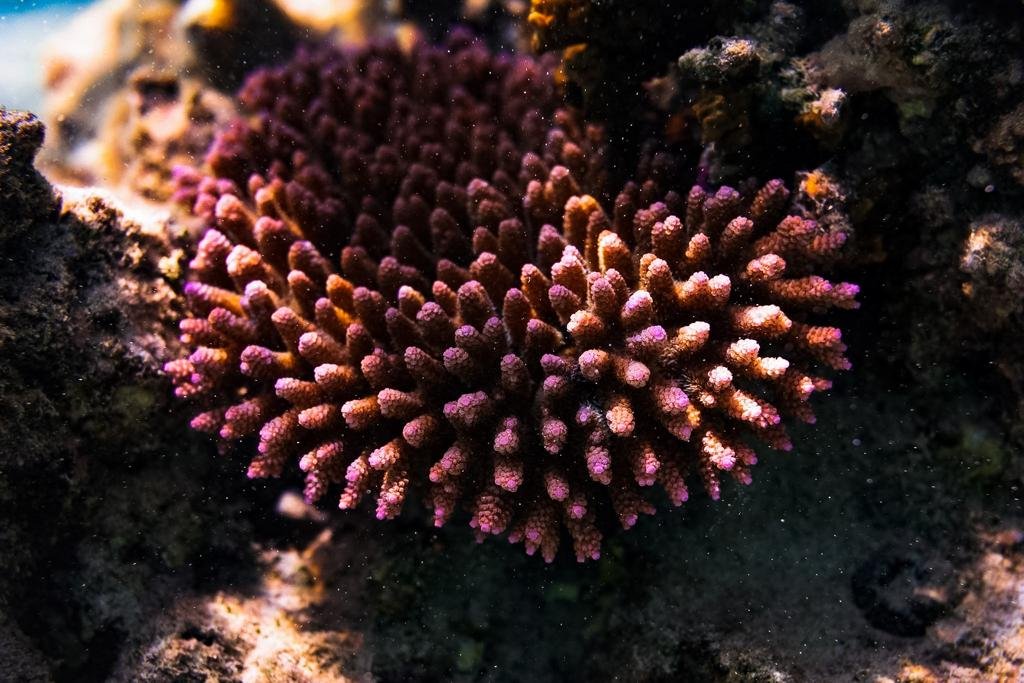The Te Ara o te Akau team standing behind a newly-built coral nursery frame with Alex sixth from the left.
Creating a community, above and below the water, to protect Rarotonga’s coral reefs
WORDS BY TAMARA BLAZQUEZ-HAIK
IMAGES BY ALEX MOANA KING
Coral reefs are among the most important, biodiverse and complex ecosystems on our planet, as they not only provide thousands of marine species with food and shelter, but they also provide coastal protection by preventing erosion and by reducing the intensity and power of waves hitting the coast, especially during storms. Coral reefs also provide sustenance and steady incomes to millions of people, especially those from Indigenous communities that have thrived alongside reefs and the ocean for hundreds of years.
Sadly, coral reefs, which are often considered the rainforests of the sea, are facing a number of threats that endanger their survival. Some of those threats include a rise in ocean temperatures due to climate change, ocean acidification, pollution, overfishing, tourism activities and pressure from increased foreshore development, to name a few. However, many experts agree that in order to improve reefs’ resilience against these global threats, local actions can be taken to alleviate some of the pressures these ecosystems face.
Following this line of thinking, Alex Moana King, a Māori environmental advocate, cultural documentarian, and one of our Revolutionary Storyteller grantees, has started a non-governmental organization (NGO) called Te Ara o te Akau—The Meaning Behind the Reef in Rarotonga, an island in Polynesia that is part of the so-called “Cook Islands.”
“The purpose of this NGO and project is to implement coral restoration methods using our onsite nurseries within our lagoons to help regenerate the coral life inside these lagoons and outside the reef here in Rarotonga,” says Alex. “Our main goal is to help regrow the coral reef following degradation over recent years using our lagoon-protected nurseries, sheltering our marine life, and helping to increase our fish population,” she continues. Alex, who views this important initiative not only as a way of reclamation as an Indigenous activist, but also as a way to “build a new community, above and below the water”.
Bleached coral.
“The inspiration to create Te Are o te Akau was seeing with my own eyes the dying and colourless coral in our waters especially since my childhood. I have also seen the changes since an increase in tourism activities and developments and it has been frustrating to see our government has no strict policies or regulations to monitor these issues. I have always been a voice or advocate for environmental protection here in my community through my photography and storytelling and sitting back watching things continuously unfold was not helping. Taking bigger steps to counter the problem, I decided to build a team of passionate ocean people and start up my own organization so I could encourage more action towards protecting our oceans.”
Alex continues, “We are a nation that heavily relies on our ocean to feed our people and to protect our shorelines. The reef is a protective barrier when it comes to the open ocean and heavy storms or cyclones and big swells. Over the course of our existence as Polynesian people we have always been ‘ocean people’. We are very much connected with our moana [ocean]. Here in Rarotonga we have chemical pollution and run-off from island plantations, homes and tourist accommodations. This is one of the biggest threats to our coral life. We are also experiencing changes through tourism activities, whether it’s noise pollution from daily boat activities, people standing and walking on our coral, or heavy use of sunscreens in our lagoons, not to mention climate change. All of this causes bleaching events and broken coral fragments.”
Healthy coral.
Ocean and marine life conservation has been dominated by western science, leaving Indigenous communities, activists, advocates and also Indigenous scientists out of the conversation for too long. This is despite the fact that Indigenous peoples, like the Māori, have thrived along the ocean for centuries and their ancestral knowledge is actually key for guaranteeing the success of ocean and coral reef conservation in Polynesia. This is the reason why Alex and her NGO’s work is so important—not only as a reclamation tool, but also to show the world that community and Indigenous-based conservation projects are the key to reversing ecosystem degradation and to protecting nature.
“For me having an Indigenous-led project is most important because I understand that our ancestral practices like the Ra’ui (traditional conservation practices that have always helped us manage our resources) which protects certain areas at a time from any harvesting or food collection to allow these resources to regrow and increase in numbers, plays a huge part in balance between our human consumption and disturbance and the health of the environment. There are some islands here like Pukapuka who still live heavily within this tradition and it has sustained their way of life and protects much of their environment. We have slowly forgotten these values in Rarotonga and so this project aims to reintroduce these values and awareness around why having Indigenous practices and knowledge at the centre of this initiative is so important.”
Their goals for the NGO include:
Regrow and increase the coral life in the lagoons and on the reef by 10-20 percent over the next 10 years (our numbers are still estimate at this stage and it’ll be a huge effort) in turn increasing fish populations.
Re-ignite traditional Ra’ui practices and better management to safeguard the marine life populations and diversity.
Provide education to the community and the schools(youth) through in and off field workshops to become the future custodians of the reef and ocean conservation for the Cook Islands.
Expand to our Pa Enua islands who need to look at coral restoration and reef protection. So far we have already started this expansion which is huge for our NGO.
Raise awareness around land pollution, through use of chemicals in plantations, onshore developments, seabed mining, tourism activities, and climate change and how these impact the coral reef.
To learn more about Alex Moana King’s work and that of Te Ara o te Akau please follow below to learn more.










